The FTC looks to crack down on influencers and platforms over 'fake and manipulated reviews'
The agency has proposed updated guidelines aimed at addressing fake reviews, lack of disclosure, and "stealth advertising" to children.

In 2019, the Federal Trade Commission issued a friendly, easy-to-understand digital booklet called Disclosures 101 for Social Media Influencers, designed to help streamers and influencers understand when and how to disclose their promotional relationships with companies. Now it looks like the FTC is preparing to draw a harder line against "stealth advertising" and endorsement disclosure, as it has voted to consider updating its guidelines against "fake and manipulated reviews."
The FTC has been battling against deceptive online advertising for years. In 2015, for instance, it settled a case against Machinima Inc. over its failure to disclose the fact that it was paying its influencers for promotional videos; a year later, WBIE settled similar charges relating to a Middle-earth: Shadow of Mordor promotional campaign. The ongoing problems helped prompt the creation of the Disclosures 101 primer, but the Endorsement Guides underpinning it were last updated in 2009, a geological span of time in the digital world. Thus, the FTC has proposed changes to its guidelines that "reflect the extent to which advertisers have turned increasingly to the use of social media and product reviews to market their products."
The proposed changes don't just target influencers. The notice of recommended revisions also includes a warning to social media companies that their influencer tools may not be adequate to meet legal requirements, which opens them to potential liability; it also says that companies making use of consumer reviews in promotional materials "should not distort or misrepresent" what people actually think of their products. "Microtargeting" specific audiences will also come under greater scrutiny under the proposed new rules. An example cited in the update notice:
"A social media advertisement promoting a cholesterol-lowering product features a testimonialist who says how says by how much they lowered their serum cholesterol. The claimed reduction greatly exceeds what is typically experienced by users of the product and a disclosure of typical results is required. The marketer has been able to identify from online data collection Spanish speaking individuals with high cholesterol levels who are unable to understand English and microtargets a Spanish-language version of the ad to them, disclosing the typical results in English. The adequacy of the disclosure will be evaluated from the perspective of the targeted individuals."
"Child-directed advertising" is also highlighted as being "of special concern" because children may (and let's be honest, will) react to advertising and influencers differently than adults, regardless of disclosures made. "Practices which would not ordinarily be questioned in advertisements addressed to adults might be questioned in such cases," the FTC said.
"Online reviews and influencer endorsements are ubiquitous on the internet, and they present real and new challenges," FTC commissioner Rebecca Slaughter said during an open commission meeting on May 19. "Unlike yesterday's celebrity endorsers, influencers are often seen as experts in their market, whether that's for fashion, health products, or cutting edge consumer technology.
"Influencers constantly interact with their followers in their market or social niche. These are often relationships of trust and without clear guidelines and responsibilities. They're ripe for commercial exploitation and deception. The new guides make it clear that we intend to investigate breaches of that trust, whether it's by brands manipulating reviews, influencers not disclosing material relationships with companies, or by micro-targeting aimed at deceiving specific groups of consumers."
Keep up to date with the most important stories and the best deals, as picked by the PC Gamer team.
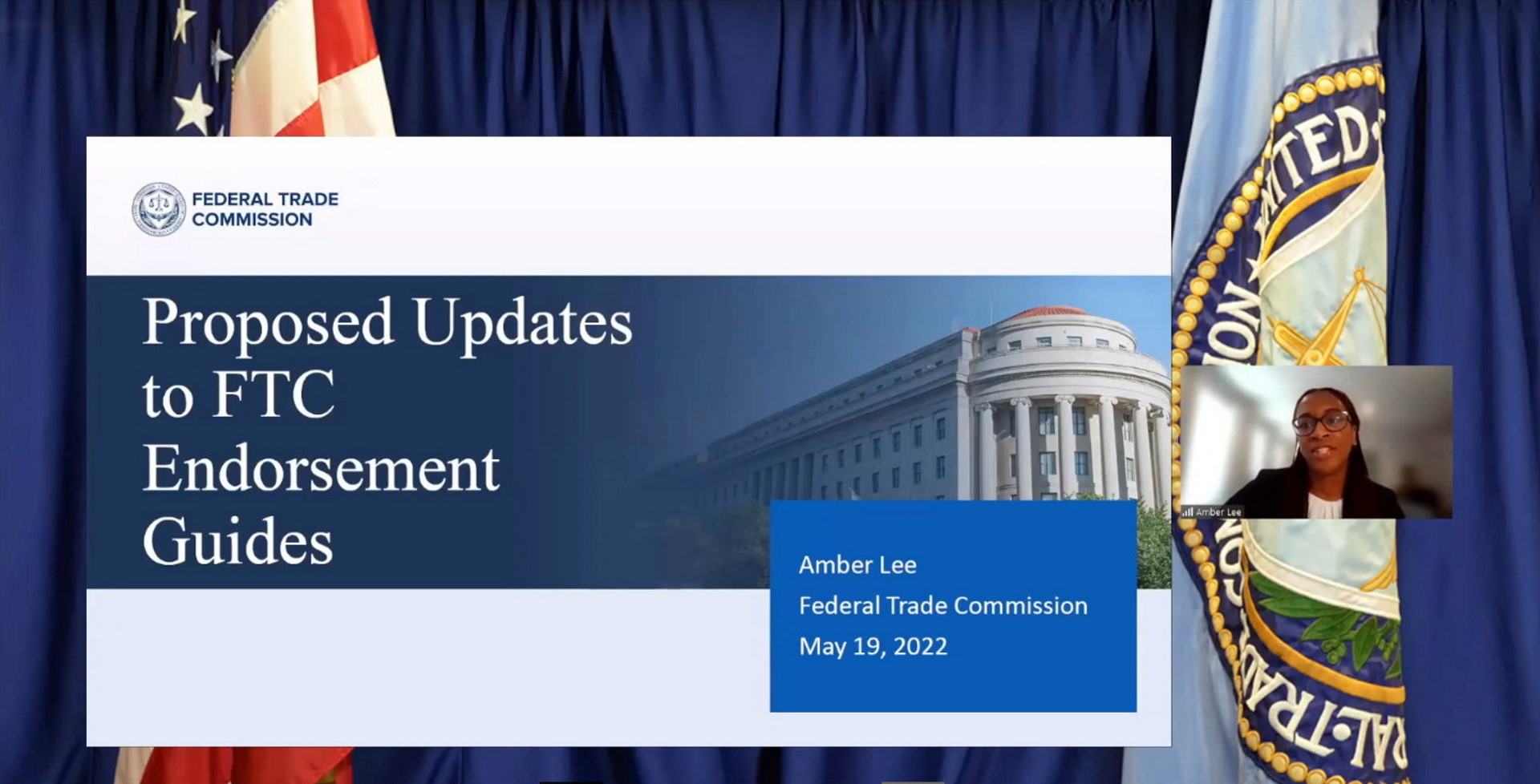
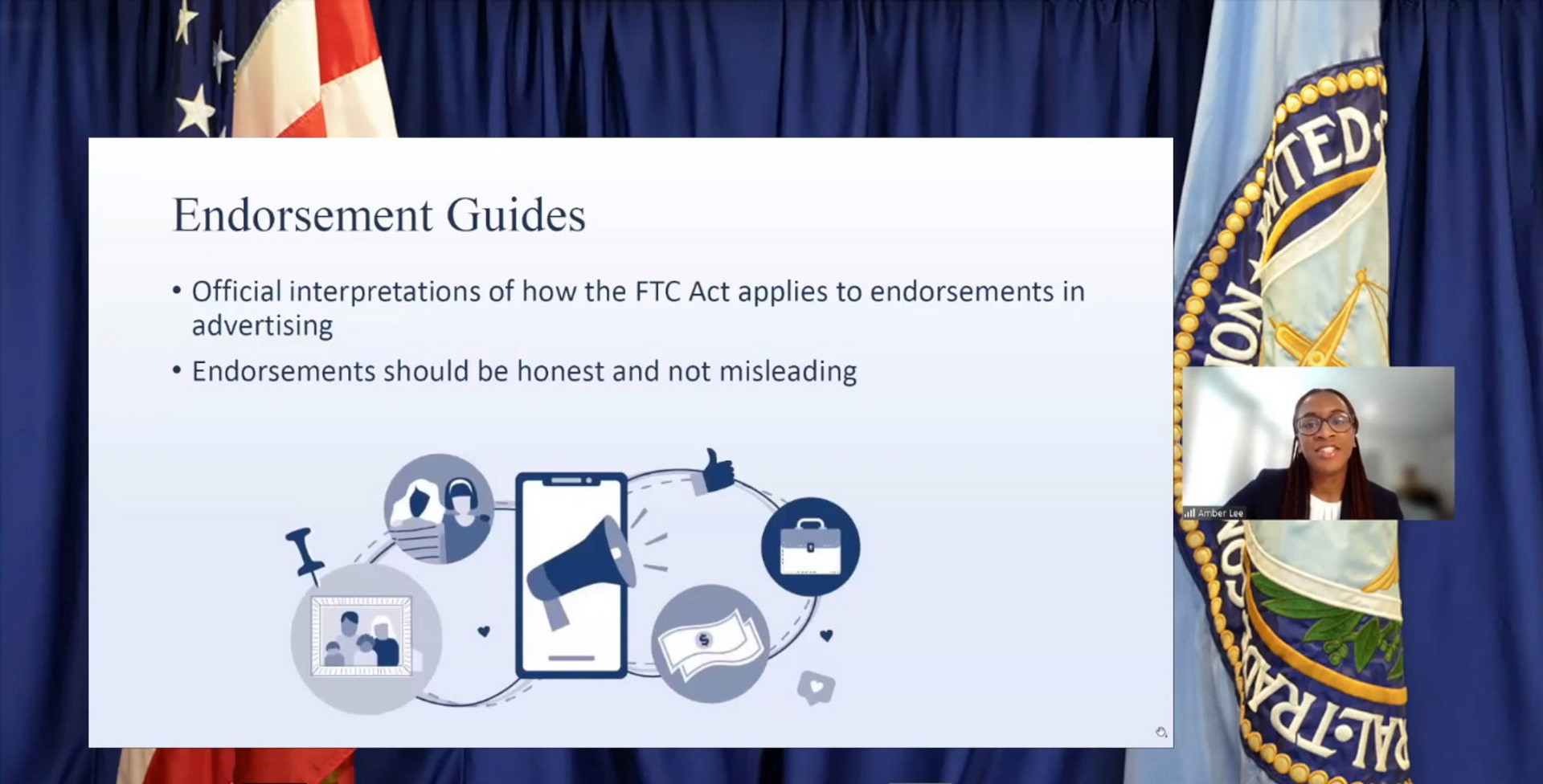
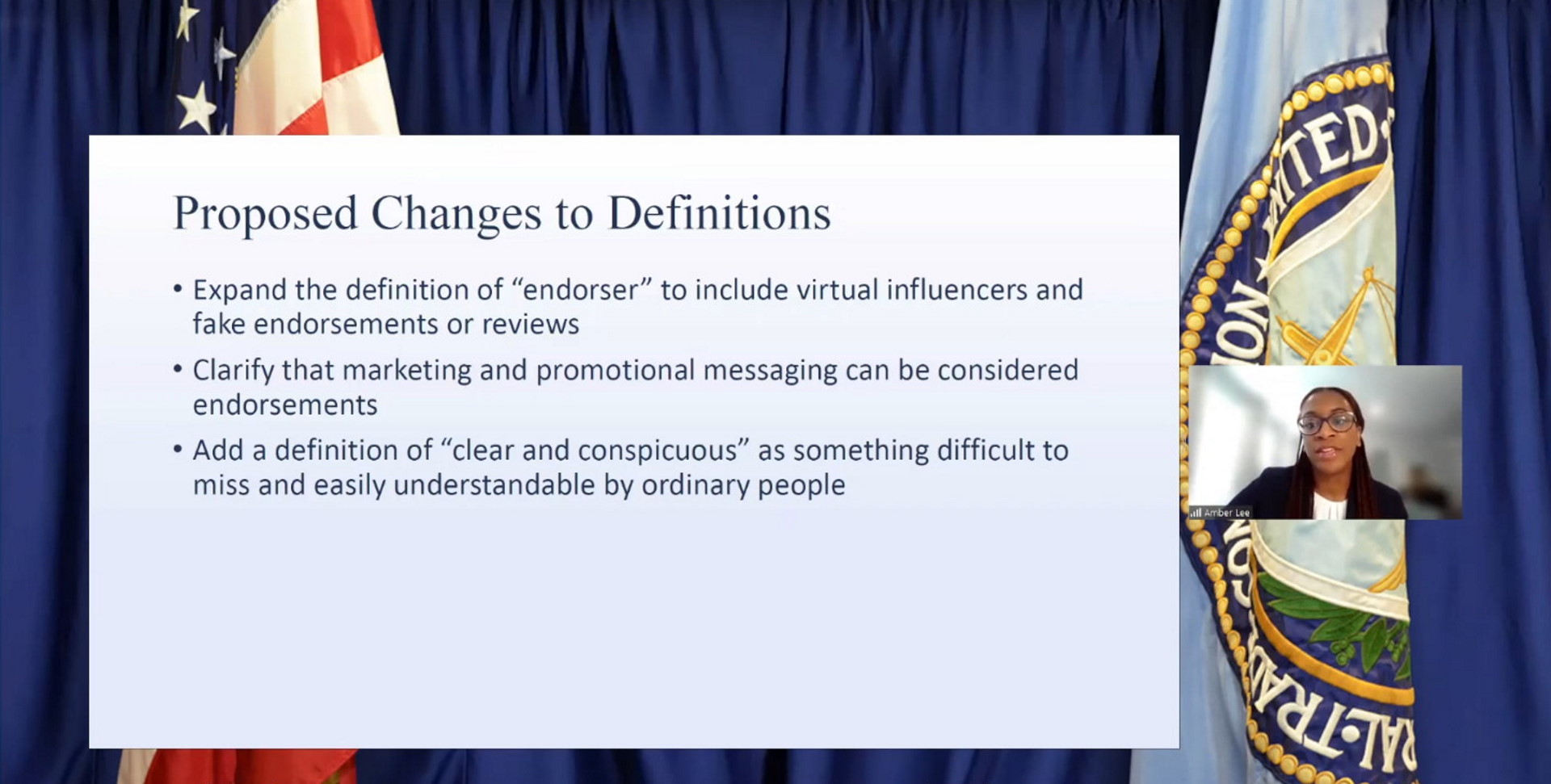
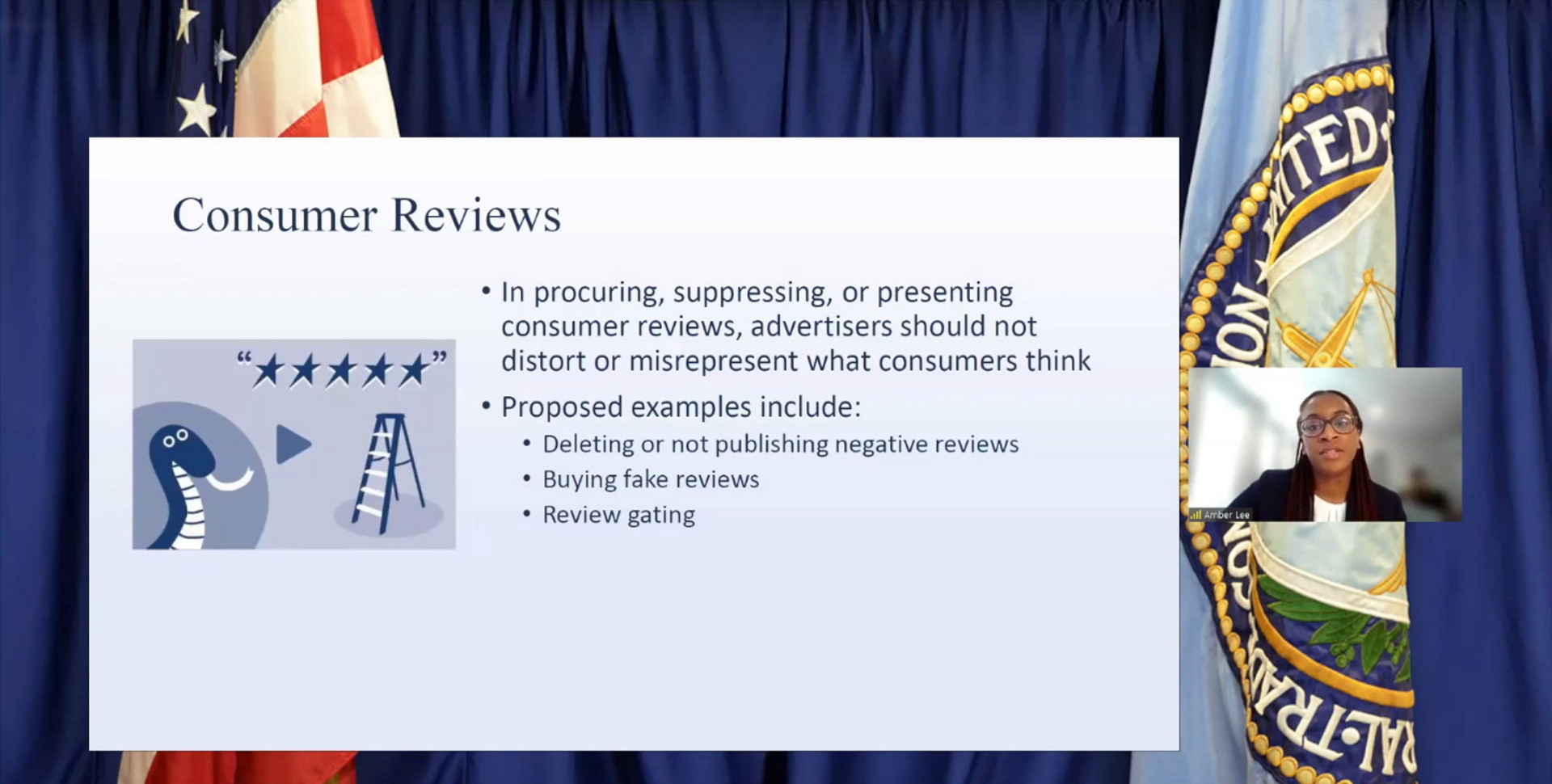
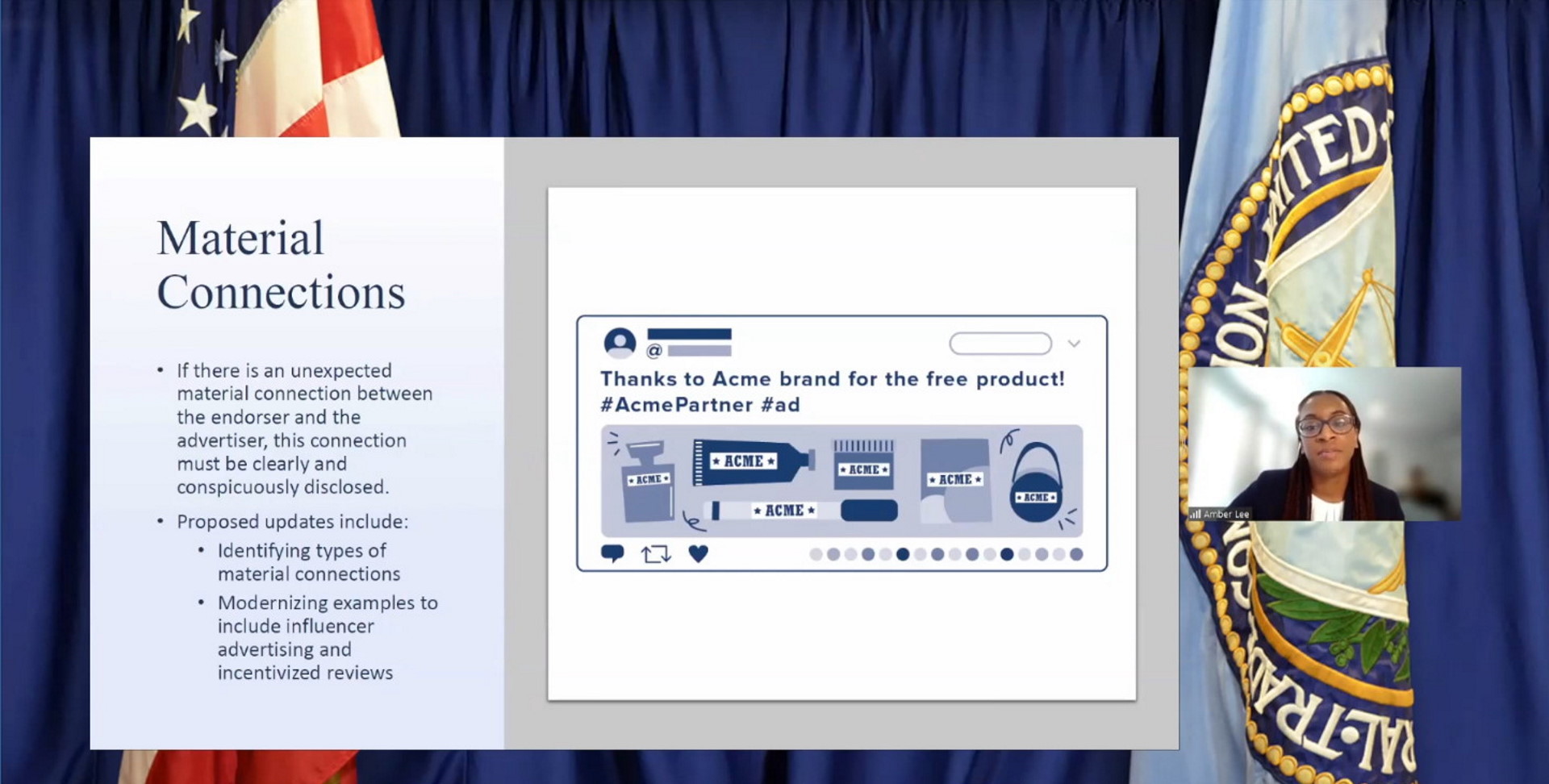
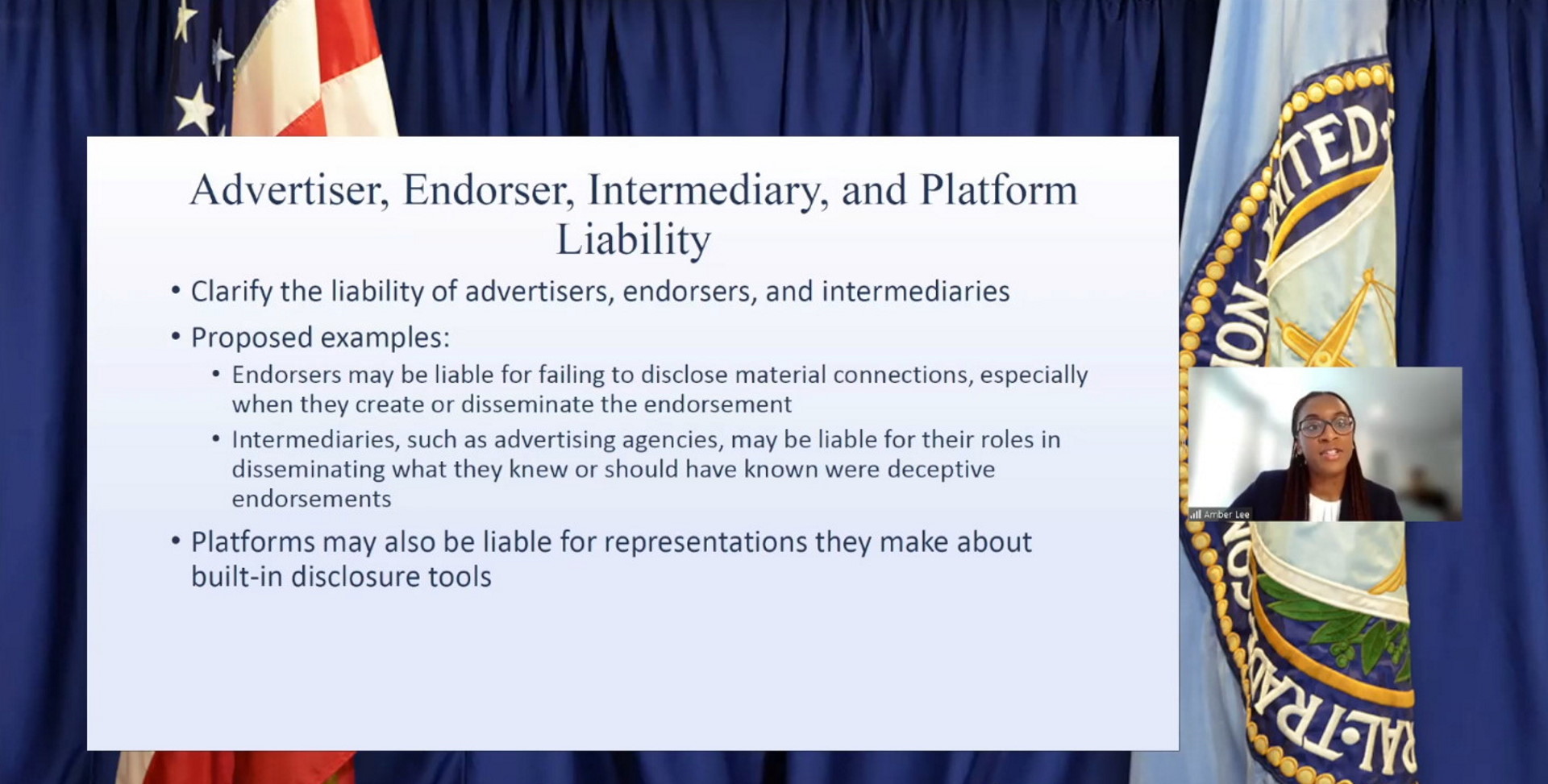
The updated guidelines will also increase the focus on the role of brands in influencer promotions: There's a real concern about brands using "unsophisticated influencers" and then trying to pawn liability for failure to disclose off on them, Slaughter said. "Brands have a real responsibility to make sure their influencers disclose that relationship."
The proposed changes are aimed at all types of influencers, but the focus on promotional content targeting children could be especially troublesome for platforms like Twitch and YouTube. A 2019 Statista report (via Backlinko) found that 41% of Twitch viewers were aged 16-24, and nearly three-quarters were between the ages of 16 and 34. But younger viewers weren't counted in the survey: 16 was the lowest age included. That makes it impossible to say definitively, but I'd be willing to bet that there are a lot of under-16s watching streamers regularly. In fact, I can think of two right off the top of my head—my nephews, who I'm pretty sure are not outliers in their particular demographic.
The FTC voted unanimously to send the proposed changes to the Federal Register, the office of the US government that contains agency rules, proposed rules, and public notices. Another public event focusing on the ability of children to distinguish and understand advertising content, "and the need for and effectiveness of disclosures to children," is scheduled for October 19.

Andy has been gaming on PCs from the very beginning, starting as a youngster with text adventures and primitive action games on a cassette-based TRS80. From there he graduated to the glory days of Sierra Online adventures and Microprose sims, ran a local BBS, learned how to build PCs, and developed a longstanding love of RPGs, immersive sims, and shooters. He began writing videogame news in 2007 for The Escapist and somehow managed to avoid getting fired until 2014, when he joined the storied ranks of PC Gamer. He covers all aspects of the industry, from new game announcements and patch notes to legal disputes, Twitch beefs, esports, and Henry Cavill. Lots of Henry Cavill.

